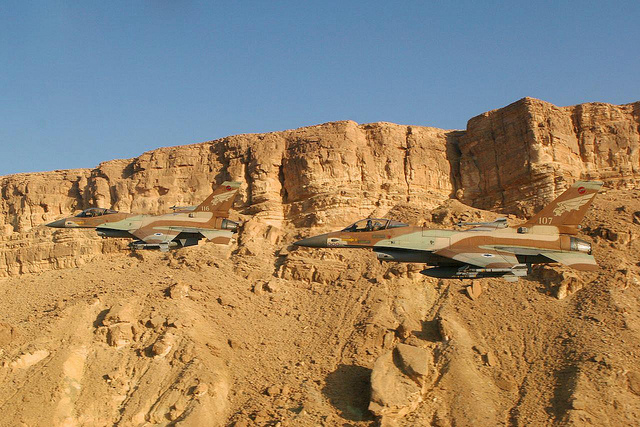On 10 February, the world woke up to the news that Israeli fighter jets had hit Iranian targets in Syria. The altercation highlights the dangerous game that Russia is now playingin the eastern Mediterranean.
The Israeli strikes came in response to an Iranian drone, launched from an airfield near Palmyra, that infiltrated Israel for 90 seconds. Israel responded with a ‘large-scale strike’ against four Iranian and eight Syrian targets in Syria. The attack destroyed aerial defence batteries, a Syrian radar installation and the trailer from which the drone had been launched. The Assad regime responded to the incursion with its Russian SA5 and SA17 anti-aircraft batteries, shooting down an Israeli F-16 fighter, which crashed in northern Israel after its pilots ejected.
Russia has strong relations with Iran and Syria, but at the same time Jerusalem and Moscow are improving their relations. Moscow sees enormous strategic value in working with one of the world’s premier ‘start-up’ nations. Israel offers Russia much, starting with around a million Russian-speaking Israelis (at least three Israeli government ministers speak fluent Russian), and people can travel very easily between the two countries. Moreover, President Vladimir Putin has capitalised on the strained relationship that existed between Israeli Prime Minister Benjamin Netanyahu and Barack Obama to improve relations with Israel. Netanyahu seems to appreciate the Russians’ pragmatic stance. Additionally, Israelis recognise Russia’s growing presence in, and rising influence across, the eastern Mediterranean, making Russia invaluable to Israeli security.
Israel recognises that the key to its security lies in persuading Putin to limit Iranian adventurism. It expects that, with the defeat of Islamic State, the Iranian presence will increase, posing a clear and present danger to Israel.
Two weeks ago, Netanyahu travelled to Moscow, where he allegedly informed Putin that Israel views the Iranian presence in Syria with the ‘utmost gravity’ and will ‘act according to need’ to curtail the threat. Netanyahu reportedly asked Putin to exert pressure on Iran to remove 70,000 long-range missiles that it has placed in Syria.
Read the article by Isaac Kfir, director of the National Security Program and head of the Counter-Terrorism Policy Centre at ASPI at The Strategist.

